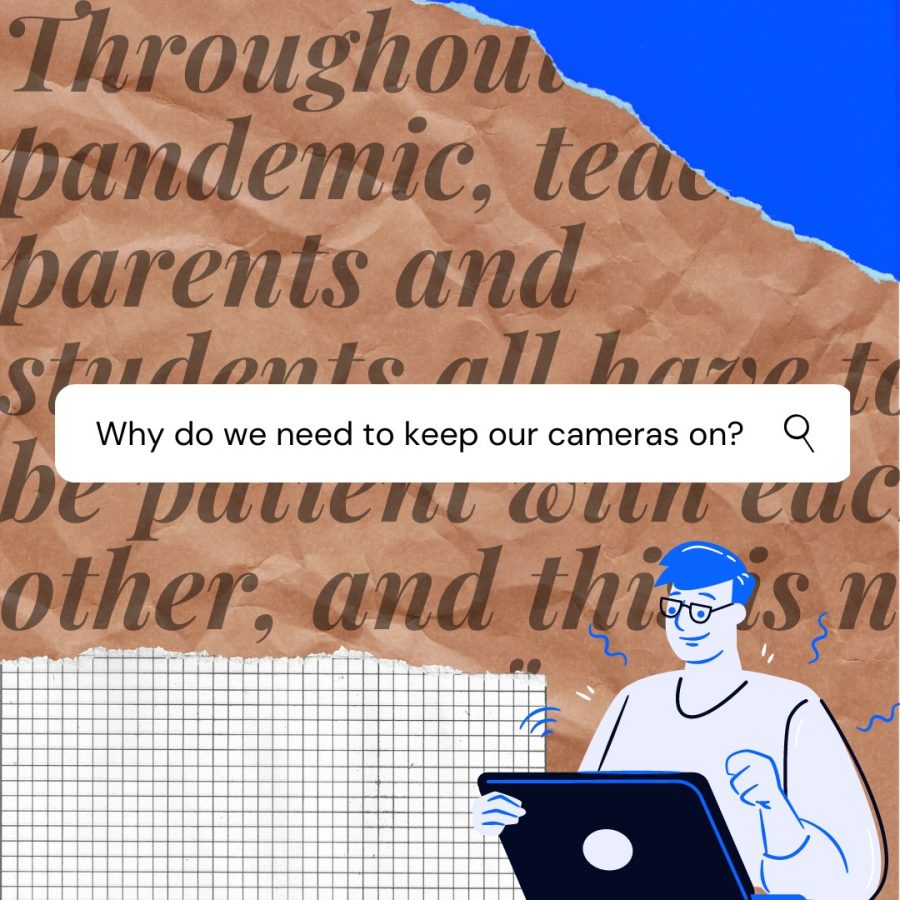Cut the cameras: a look into Krop’s Zoom policy
“Face masks,” “hand sanitizer” and “Zoom” have become daily vocabulary to millions of students across the world, but the one word we are missing is “privacy.”
Throughout the U.S., schools have migrated to online platforms such as Google Meet and Microsoft Teams to teach their daily lessons. Controversy surrounding the question of whether students should be required to keep their cameras on during classes has arisen. However, as with every covid-related issue, it’s not simply a matter of yes or no, but a matter of flexibility.
From kindergarten to high school to college, some teachers have expressed disapproval of teaching to students who opt out of turning their cameras on, known as “black squares.” These same teachers are explaining how difficult it is to interact with people you can’t even see.
“In a classroom, I am used to seeing my students and interacting with them on a daily basis, and if I am unable to interact with them, it’s like I am talking to myself,” math teacher Debra Stein said.
Students disagree, feeling that being required to keep their cameras on is a breach of their privacy.
“Many students don’t want others to know about their personal life, and by having the camera on, they can see everything in the student’s environment which is kind of invasive,” sophomore Ashley Greaver said.
However, this topic is not so black and white. In environments where students don’t want to show their at-home matters, virtual backgrounds and “blur” features can be used to disguise where they are.
Nonetheless, there is not only one correct way to require students to keep their cameras on. Instead, students can be asked to turn their cameras on when answering or asking questions in order to reduce the stress some students feel from being on constant display right at the fingertips of their peers.
If teachers still feel the need to see their students throughout the whole call, they can always give students the choice to email them about keeping their cameras off.
Stein suggested that while she prefers students to keep their cameras on, there are always special circumstances, but she won’t know about them unless the student tells her. This means that if a student lives in a place where they are uncomfortable showing their surroundings, have issues with their camera or need to have their camera off for another reason, they should be able to send their teacher an email, so that the teacher is aware and no issues are made of it.
Since this can still be invasive to student privacy, teachers can send out forms to students and parents asking them to sign off on the requirement of keeping cameras on, unless told otherwise.
Throughout this pandemic, teachers, parents and students all have to be patient with each other, and this is no exception. The requirement of keeping cameras on during online classes should be kept on a student-to-student basis and not “all or nothing.”



